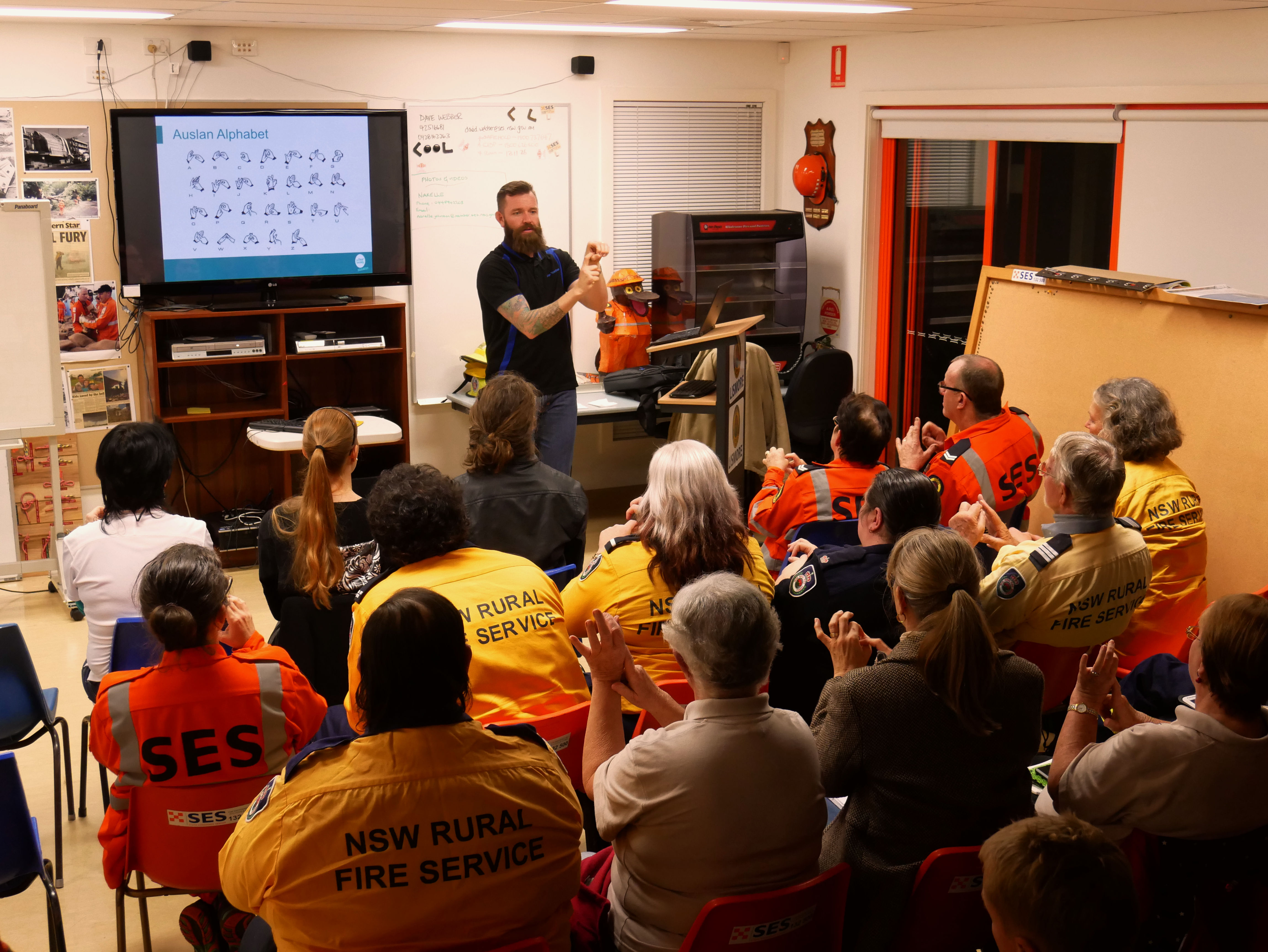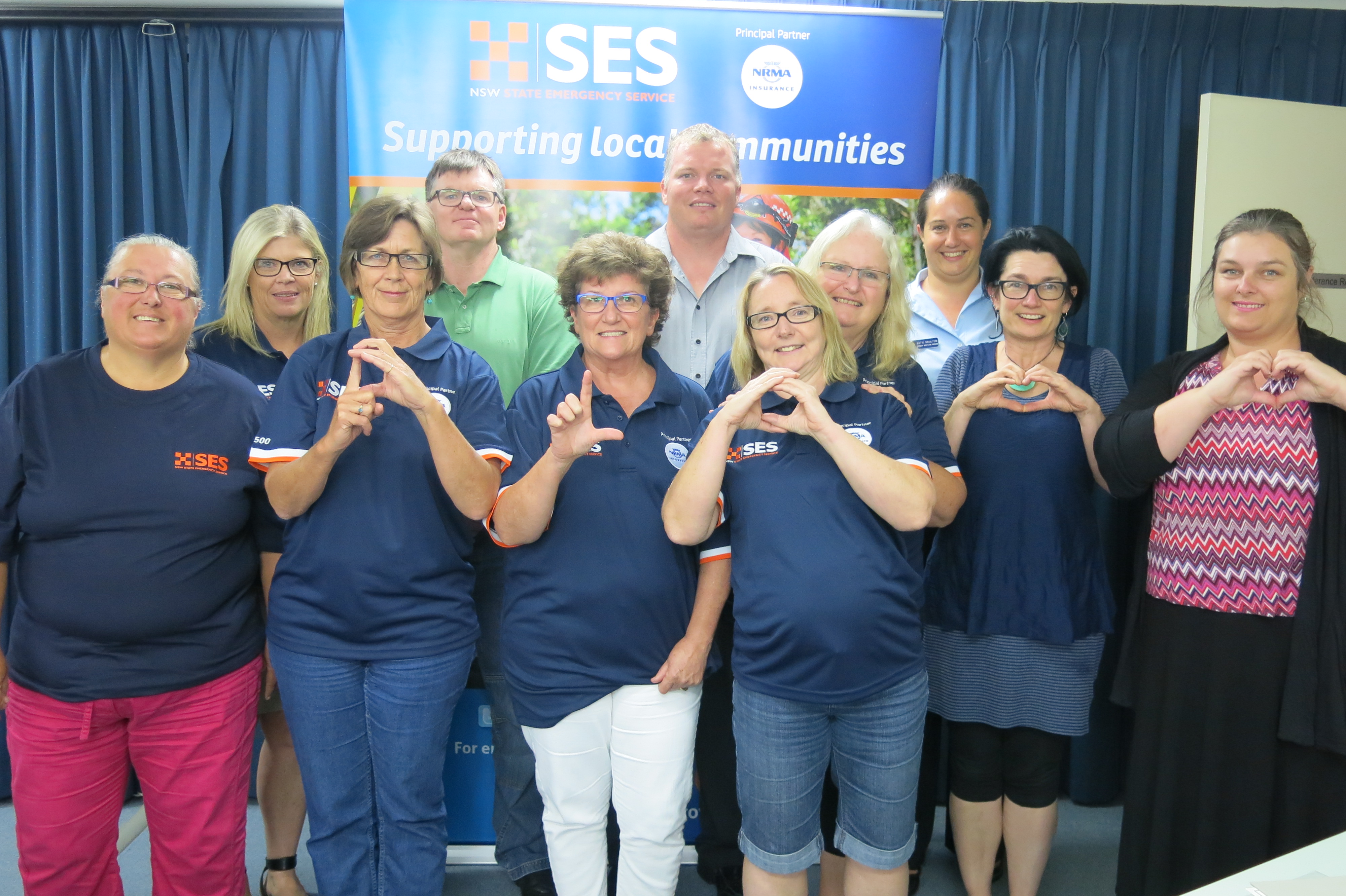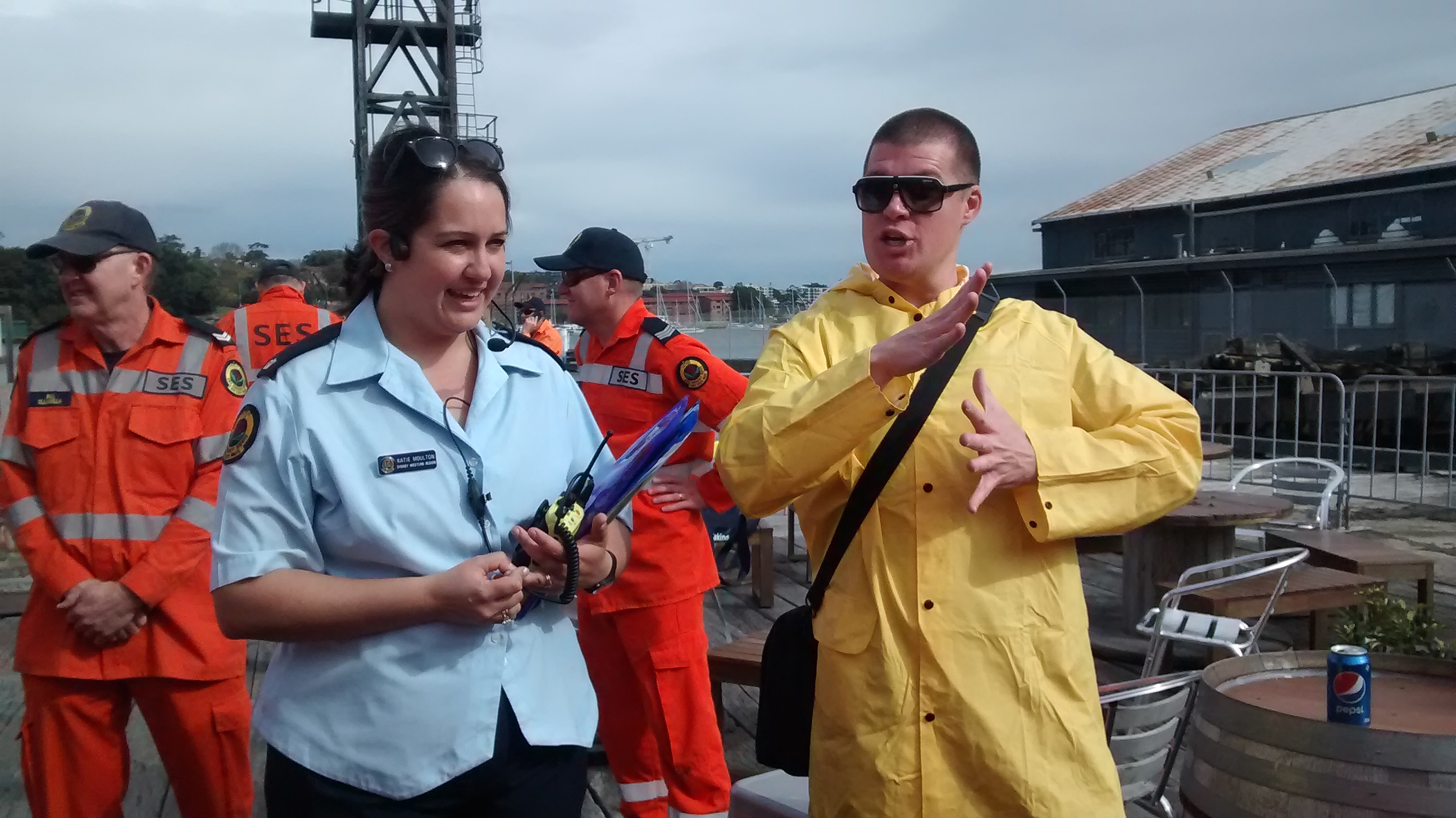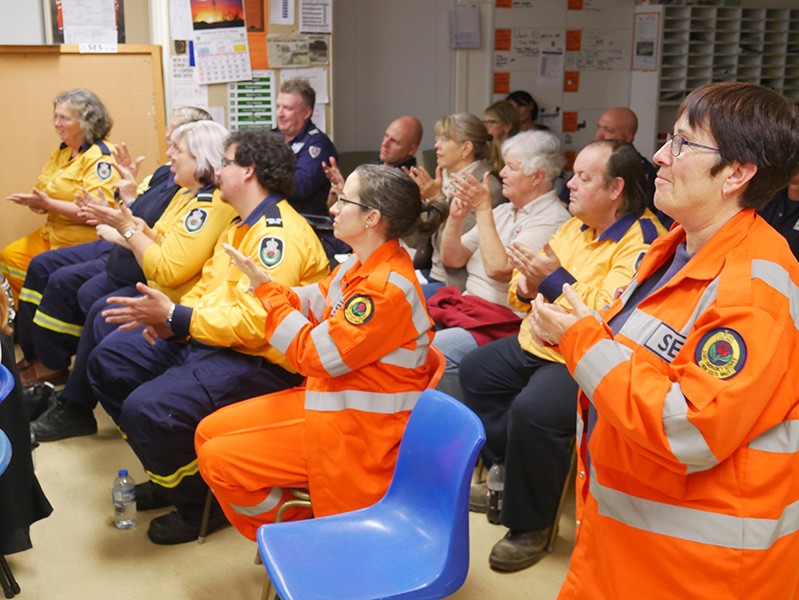The Deaf Society Get Ready program began as a one-year project under the Natural Disaster Resilience Program. Get Ready is the implementation of recommended interventions arising from university research into disaster resilience in the deaf community.
Get Ready Deaf Community NSW is a highly successful emergency preparedness program undertaken by The Deaf Society. It is a partnership between The Deaf Society and NSW State Emergency Services, NSW Rural Fire Service, Fire and Rescue NSW, Australian Red Cross and the University of Sydney.
The Get Ready program helps deaf, deafblind and hard-of-hearing people to increase their readiness for, and recovery from, disasters. It helps emergency services personnel increase their deaf awareness and ability to communicate with deaf people. Consistent with the National Strategy for Disaster Resilience,1 the deaf community and emergency services organisations share responsibility for helping the deaf community prepare and recover from emergency events.
The Get Ready program stemmed from university research conducted in partnership with The Deaf Society and emergency services organisations.2 Get Ready is the implementation of recommendations arising from that research that are designed to:
- increase deaf people’s accessibility to emergency information
- strengthen social capital within communities and build stronger institutional links
- increase the capacity of emergency service organisations to better support the deaf community in hazard situations and meet identified needs
- facilitate greater deaf community engagement and action on emergency preparedness.

Deaf Awareness Training is part of the Get Ready program. Image: The Deaf Society
The program uses an asset-based community development and capacity-building approach. ‘Effective risk communication and disaster preparedness strategies are inclusionary, decision-relevant, two-way and they foster trust, awareness, understanding and motivation to act’ (Calgaro et al. 2013, p. 65). Hence, at the core of Get Ready are Deaf Liaison Officers (DLOs), volunteers who provide a bridge between emergency services personnel and the deaf community.
The DLOs who were recruited were highly motivated, had fluency in Auslan and English, were well-networked within local communities and were trusted and culturally sensitive sources of information. The DLOs received training from the Office of Emergency Management, NSW RFS, NSW SES, Fire and Rescue NSW and The Deaf Society. They obtained basic emergency management training as well as preparedness training in bushfires, floods, storms and house fires. They also received training in leadership, community development, workshop delivery and mentoring.

Deaf Liaison Officers complete emergency management training with members of the NSW State Emergency Service. Image: The Deaf Society
In addition to capacity building in emergency preparedness, the program has built community capacity. The DLOs are community members who take up volunteering roles that involve workshop facilitation, teaching basic emergency preparedness, building neighbourhood networks, visiting schools, translating videos and mentoring new DLOs. The DLO is a positive role model; promoting deaf pride and leadership.
The DLO program builds a resilient community because ‘people work together with local leaders using their knowledge and resources to prepare for and deal with disasters. They use personal and community strengths, and existing community networks and structures’ (Attorney-General’s Department 2011, p. 5).
DLO activities include:
- providing a conduit to the deaf community for emergency services organisations
- delivering emergency preparedness workshops to deaf and hard-of-hearing people
- disseminating preparedness information through networks suited to deaf and hard-of-hearing people
- providing feedback to emergency services organisations on accessibility and appropriateness of information resources
- participating in deafness awareness training
- participating in scenario training
- participating in emergency services advisory committees
- promoting campaigns and services delivered by emergency services organisations.
There are DLOs in Illawarra, Campbelltown, the Blue Mountains, metropolitan Sydney, the Central Coast and Hunter Valley regions of NSW. DLOs have also delivered workshops in Coffs Harbour, Tweed Heads and Lismore. To date, 11 DLOs have delivered 13 workshops to 312 people in the deaf community throughout NSW.
Information provided in accessible forms is paramount for resilience. The Australian Red Cross RediPlan has been translated into Auslan in a suite of seven videos available at The Deaf Society website. These videos are used as the basis of community preparedness workshops delivered by DLOs. The RediPlan was chosen as the foundation resource because it is a national multi-hazard plan. It is a great fit for the multi-hazard, multi-agency approach of Get Ready.
Through collaboration with our partners, we have built capacity and social capital in the emergency services sector. Hearing people have little understanding of the alternate ‘world view’ and profoundly different life experience of those in the deaf community. This has resulted in the development of emergency management tools and strategies that have had little effect. ‘People cannot find answers to problems that they don’t fully understand or acknowledge’ (Calgaro et al. 2013, p. 62).

Deaf Liaison Officers involved in SES Scenario Training on Sydney Harbour. Image: The Deaf Society
The Get Ready program has established emergency preparedness knowledge for the deaf community. It has injected deafness awareness into the emergency services. Deaf Awareness Training is delivered to emergency services personnel so they are better prepared to communicate with deaf people. DLOs are able to advise emergency services personnel on accessibility and cultural appropriateness when they are developing new resources and campaigns. DLOs have been involved in the making of SES videos.
There has even been a recognition of the value of including a deaf perspective in the emergency sector as deaf people have very specific situational awareness. Hence, DLOs may be involved in scenario training for emergency services personnel, giving them first-hand experience of interacting with deaf people in simulated emergency situations. For example, in late 2016, DLOs were involved in a large-scale simulated flood scenario for SES training on Cockatoo Island and around Sydney Harbour.
The success of the initial project is leading to systemic change within the NSW SES. The Deaf Society is working with NSW SES to establish a multi-hazard, multi-agency deaf unit that is the first of its kind. This unit will be a permanent home for the DLOs.

Deaf Awareness Training participants in Lismore. Image: The Deaf Society
Footnotes
- Attorney-General’s Department 2011, National Strategy for Disaster Resilience, Commonwealth of Australia, Canberra.
- Calgaro E, Allen J, Craig N, Craig L & Dominey-Howes D 2013, Increasing the Resilience of the Deaf Community in NSW to natural hazards: Final Report, UNSW, Sydney.


